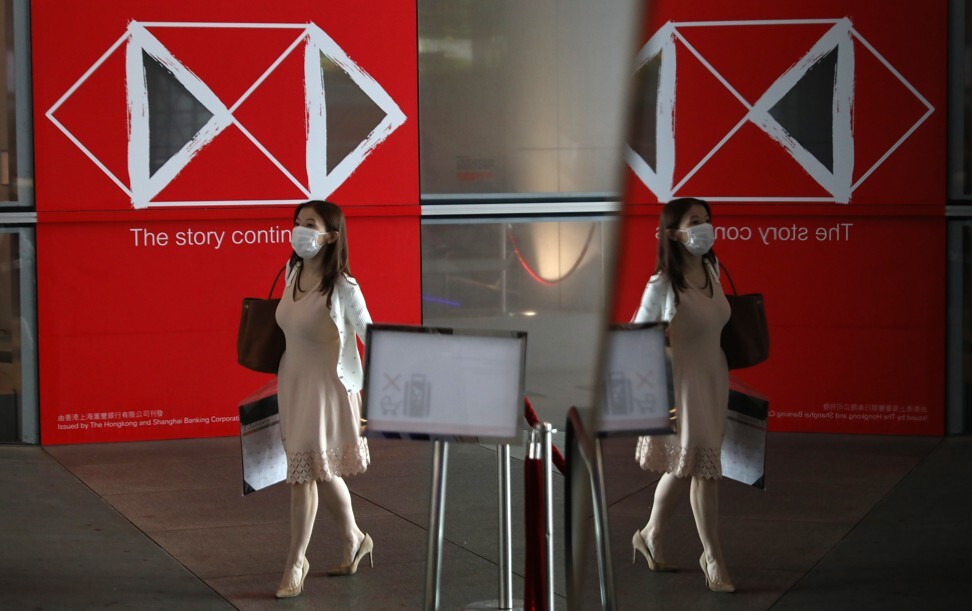
HSBC eyes restarting dividend as third-quarter profit beats estimates on strength of Asian business, slower loan losses
- HSBC cancelled its final dividend for 2019 and suspended payments this year at request of UK regulator
- Pre-tax profit was US$3.07 billion, above a consensus estimate of US$2.07 billion
The bank’s top executives said they were encouraged by its performance so far this year and the improving economic outlook into 2021, but would reassess based on economic conditions in early 2021 and discussions with its regulators before restarting payouts to investors.

04:35
Coronavirus: How close is Hong Kong to a fourth wave of Covid-19?
The news sent HSBC shares in Hong Kong to their highest level since late August.
New accounting standards adopted by HSBC and its rivals in 2018 require banks to recognise potential credit losses over the life of a loan and more aggressively write down loans if they have experienced a significant increase in credit risk.
Ewen Stevenson, HSBC’s chief financial officer, said in an interview with Bloomberg Television that the bank is considering ways to digitise more of its operations and have more employees work from home in the future following the bank’s experience during the pandemic.
“I’d like to think the balance we could get to is two or three days at home, two or three days at the office,” Stevenson said in an interview on Bloomberg Television.
HSBC reported a pre-tax profit of US$3.07 billion, above a consensus estimate of US$2.07 billion by analysts polled by the bank. That compared with a pre-tax profit of US$4.84 billion a year earlier.
On a net basis, the bank reported a third-quarter profit of US$1.36 billion, compared with US$2.97 billion a year ago. Revenue declined 7 per cent to US$15.9 billion in the third quarter, while net interest income fell 14.8 per cent to US$6.45 billion.
“Things to watch remain the interplay of unsecured retail and commercial exposures, vis-à-vis somewhat diminished fiscal support into mid-2021, and Brexit into the year-end,” Nick Lord, a Morgan Stanley analyst, said in a research report on Tuesday.
Despite its optimistic outlook, the bank warned on Tuesday that it could still face headwinds from historically low-interest rates; uncertainty surrounding a resurgence of coronavirus cases globally; the ongoing exit of Britain from the European Union; and continued geopolitical tensions between Washington and Beijing ahead of the US elections next week.

“It’s our ambition to continue to be a long-term investor in China,” Quinn said on a conference call with journalists. “We believe we have an important role to play in the opening up of China and helping China develop its international markets.”
One question for banks next year is how quickly economies can recover from the pandemic-induced downturn, particularly as government support measures ebb.
Parts of the United Kingdom, the bank’s second-biggest market after Hong Kong, and continental Europe have reinstated lockdowns and have added new social-distancing rules in recent weeks following a surge in cases of Covid-19, the disease caused by the coronavirus. Britain reported 20,890 new cases on Monday, its fifth-highest daily amount since the pandemic began.

HSBC’s UK ring-fenced bank, which covers its retail banking operations in Britain, reported a pre-tax profit of US$607 million, compared with a pre-tax profit of US$624 million a year earlier. Its non-ring-fenced business in the UK reported a profit of US$391 million, compared with a pre-tax loss of US$17 million a year ago.
Pre-tax profit in its Hong Kong business declined 37 per cent to US$1.92 billion in the third quarter, compared with a pre-tax profit of US$3.05 billion a year ago. Overall, its Asian business reported a pre-tax profit of US$3.22 billion in the third quarter, compared with US$4.7 billion a year earlier.

One bright spot for HSBC and many of its global rivals has been a favourable trading environment, which boosted revenue in its global markets business by 16 per cent. The global banking and markets business overall reported pre-tax profit declined 18.3 per cent to US$998 million in the quarter.
The US Federal Reserve indicated in September that interest rates will remain close to zero through at least 2023, with some analysts predicting rates might not rise in the US until 2025 at the earliest. That could weigh on the city’s lenders as Hong Kong’s rates are closely tied to US moves.
“The revenue impact of lower-for-longer interest rates is going to continue over coming quarters as the impact of interest rate cuts unwinds through [our profit and loss statement],” Quinn said. “In response, we’re accelerating all areas of our strategy, with a particular focus on boosting sustainable non-interest income and going further on costs.”

